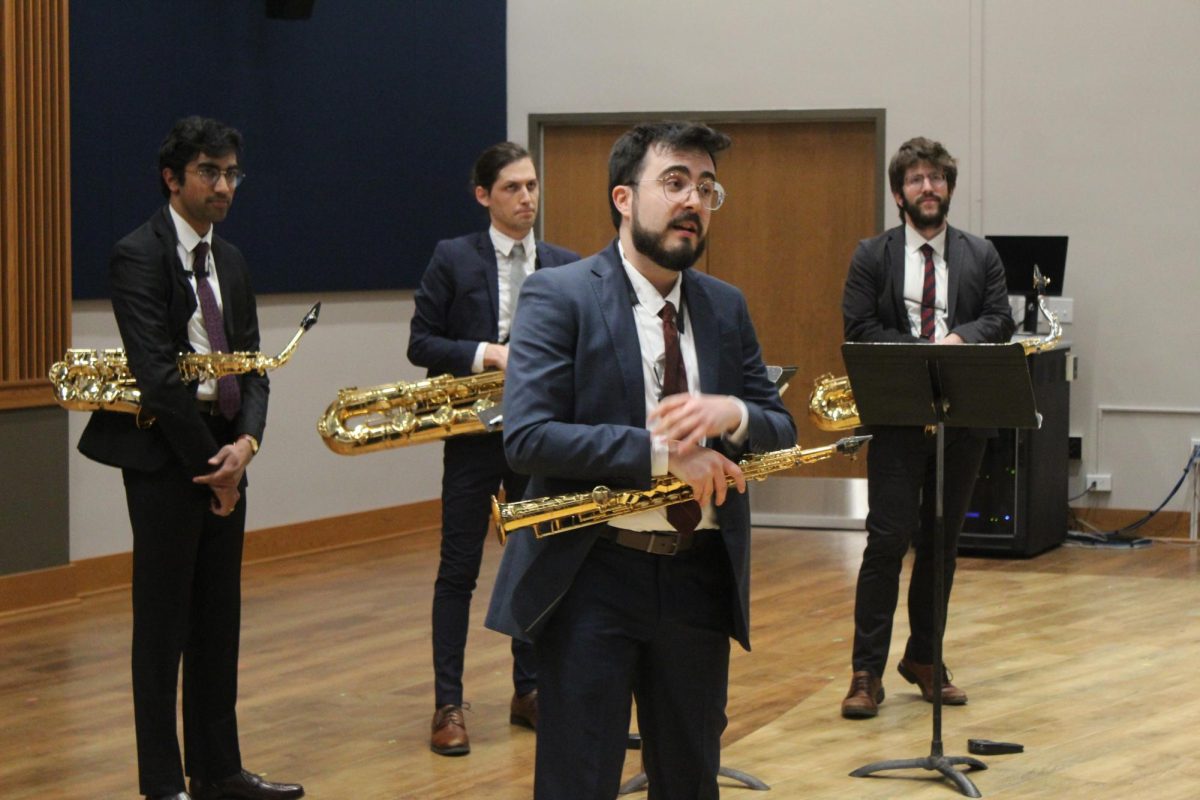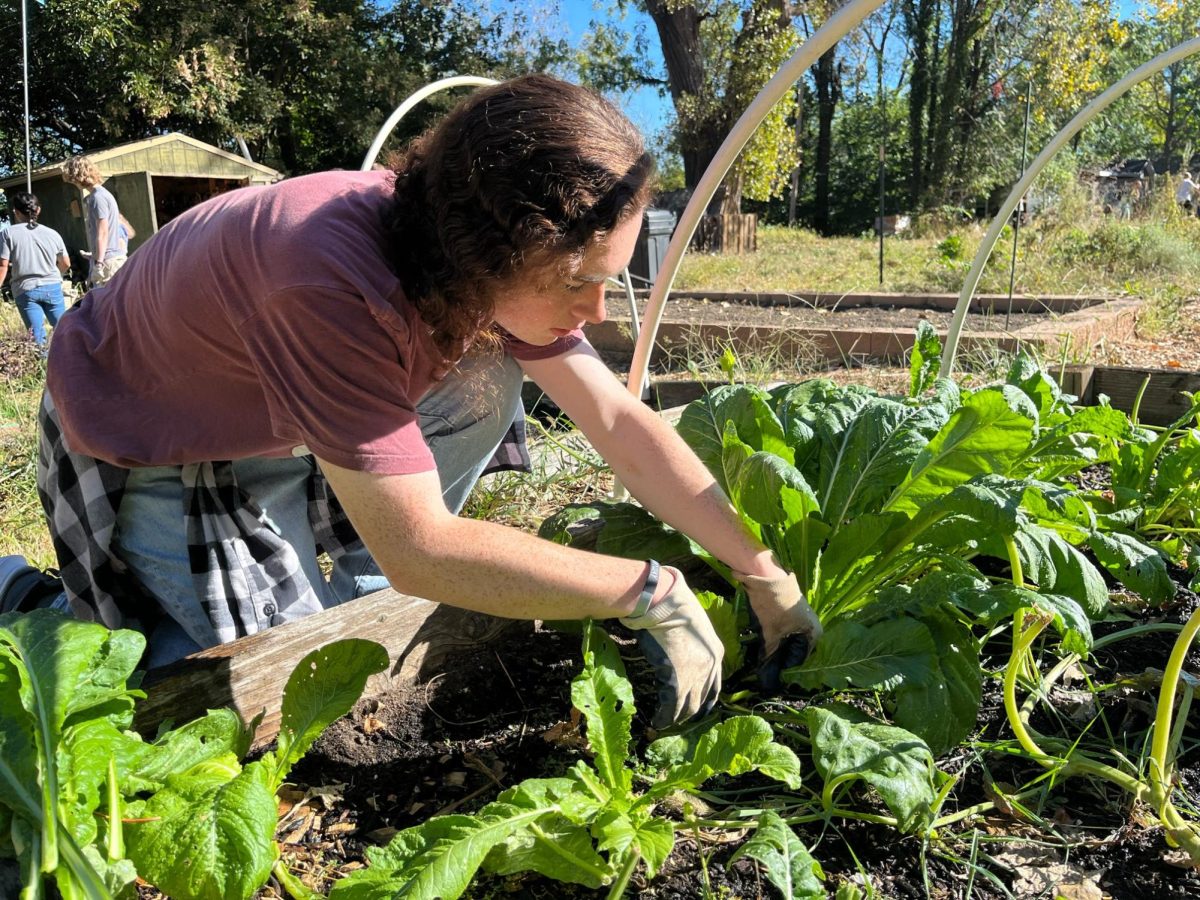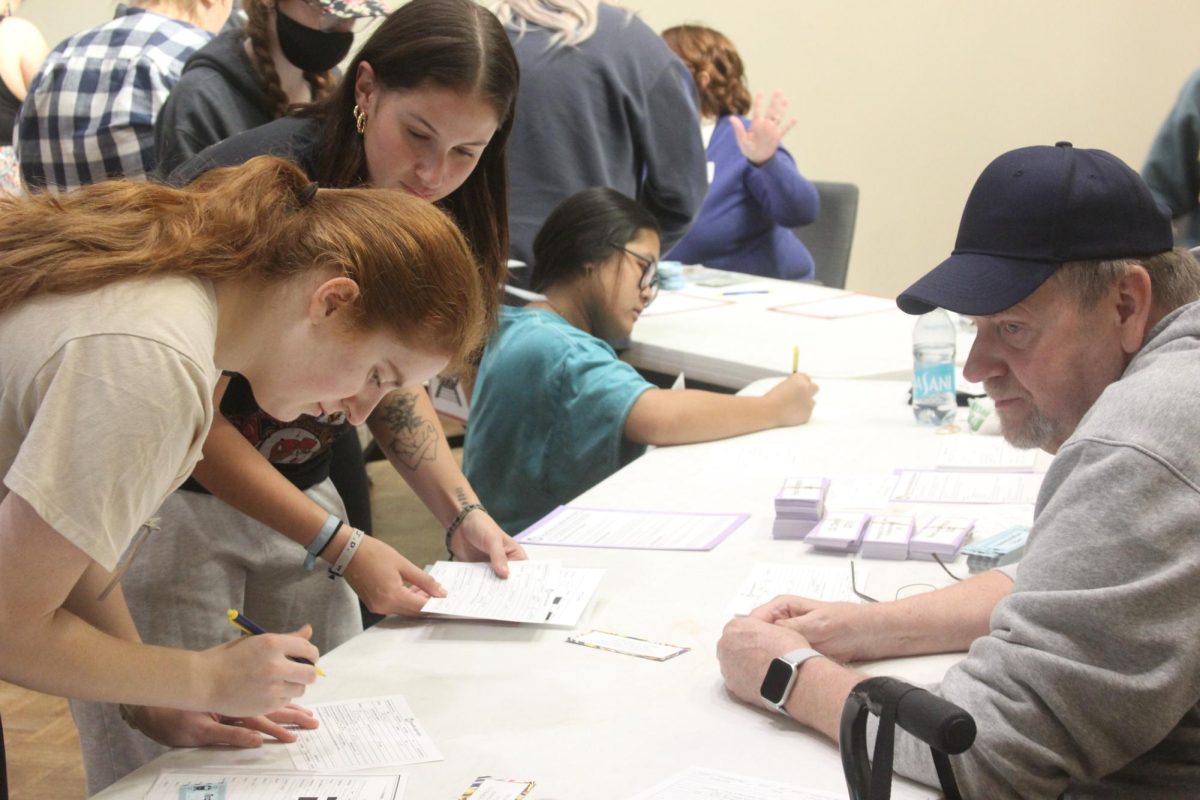Augustana’s Prison Education Program (APEP) held its second re-entry simulation at this year’s Fall Symposium Day on Oct. 9 in Wallenberg Hall, featuring local social services organization Safer Foundation. Safer Foundation is located in Moline, Ill. and assists incarcerated individuals back into life outside of prison.
Erica Lee, director of Safer Foundation and ‘06 Augustana alumni, led the re-entry simulation along with Assistant Director Brian Monroe.
Safer Foundations is headquartered in Chicago but has a satellite office here in the Quad Cities.
“Our mission, started back in 1972, has always been to assist people that have [been] impacted by the criminal legal system,” Lee said. “Whether that’s through an arrest and conviction record or if it’s through returning from incarceration, to help get them employment, over time our services have grown to be more holistic.”
At the beginning of the simulation, students each received an information and identification card of an individual who had previously been incarcerated, containing a new name, how much money they owned, the crime they committed and their living status. Students were also given a list of tasks that they had to complete within a week.
The simulation totaled four weeks, with each week being 15 minutes long. Bonnie Jessee, administrative assistant of APEP, said she wants students to understand the barriers that previously incarcerated individuals may face coming out of prison.
“Just for people to understand, in a sense, just how many barriers there really are for them to overcome and how difficult it is, which is why the recidivism is so high,” Jessee said.
Many volunteers ran several different tables to help the simulation run smoothly. Each table included a different station that participants had to go up to in order to get the task stamped on their cards. Stations included an employer station, social services, blood donation and identification station and several other stations to represent the tasks that a person on parole would have to complete.
Volunteers could deny participants stamps, making participants have to redo the activity. Junior Alice Sylvie participated in a re-entry simulation last spring and is now a volunteer.
“For training they just tell you how to operate in general, and then they kind of say it’s up to your discretion,” Sylvie said. “So, if you want to gyp someone a transportation ticket, you can do that because it’s simulating real life, because that happens all the time.”
APEP has provided education to individuals incarcerated in the East Moline Correctional Facility along with individuals who were just released. This past spring, APEP had their first graduate, David Staples. Staples graduated with a degree in psychology and is now attending graduate school in clinical mental health counseling and was able to attend the simulation as a volunteer.
“The APEP program was remarkable because what it did was it actually gave me tools to have critical thinking skills when faced with some of the obstacles that I was faced with,” Staples said. “I was able to consider options at that point, as opposed to falling back on things I might have known in my formative times.”
APEP has 34 students in their program along with several individuals who are students on campus after being released. The program is privately funded and allows for people who are incarcerated to get the same education students receive on campus.
Junior Ty Stone was a volunteer at the simulation and has been on parole for a year and a half. Stone started off in APEP and is now completing his communications degree on campus.
“Just understanding that there are people going through this every day. As a current parolee, I’ve been going through this simulation for the last year and a half. And this is kind of just an exposure thing,” Stone said. “The actual parole experiment itself is that I can’t be around cousins that have been to prison. I can’t be around friends that have been to prison, that have a record. I can’t get pulled over by the police.”










































































































